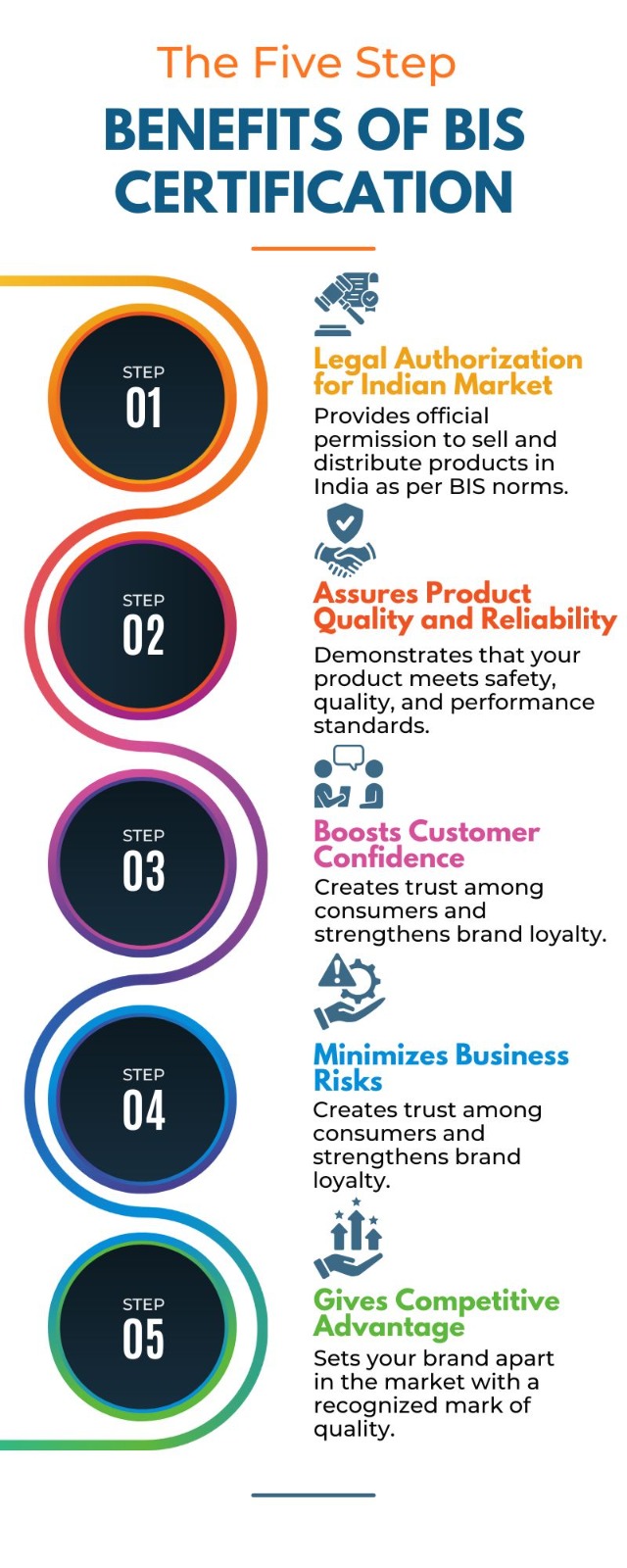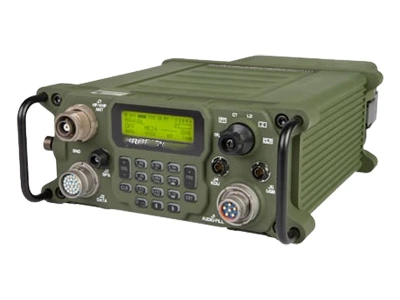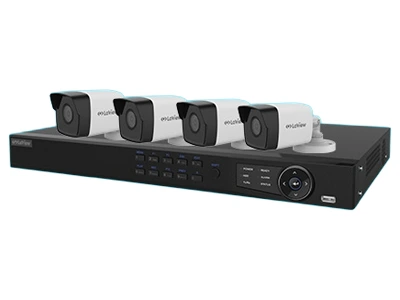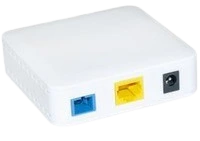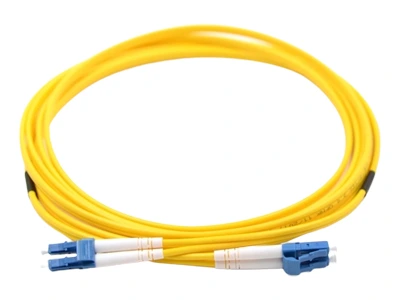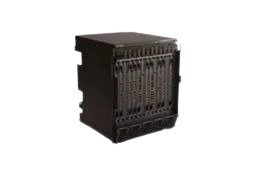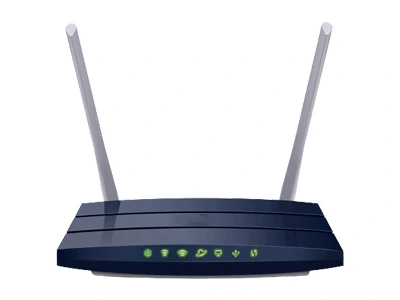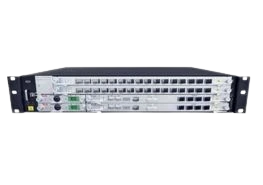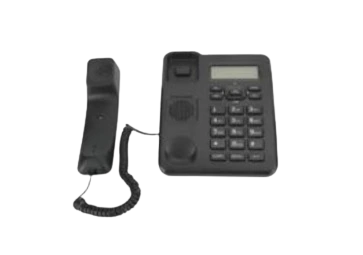Get A Quote
TEC Certification
Looking to obtain TEC Certification for your telecom products in India? EVTL India, a leading TEC certification consultant, assists manufacturers in securing TEC certificates for their telecom equipment. Our expert team ensures a hassle-free certification process, adhering to prescribed timelines. We offer step-by-step support, guiding you through every phase of the certification journey. Our consultation services are available 24/7, providing you with continuous assistance to meet all your certification needs efficiently and effectively.

- Overview
- What is TEC Certification
- Importance
- Types of TEC Certification
- What is the MTCTE Scheme?
- Products Covered Under MTCTE Scheme
- Requirements
- Process
- Documents Required
- Fees
- Compliance and Certification Maintaince
- Key Considerations for TEC Certification
- Conclusion
- Frequently Asked Question (FAQ)
TEC Certification - Overview
To sell or import telecom equipment in India, Original Equipment Manufacturers (OEMs) and Authorized Indian Representatives (AIRs) must obtain a Certificate from the Telecommunication Engineering Centre (TEC). This guide provides comprehensive information about TEC registration, including the types of certifications available, the Mandatory Testing and Certification of Telecom Equipment (MTCTE) scheme, the certification process, and the documents required.

What is TEC Certification?
TEC certification is a mandatory process for telecom equipment in India, ensuring that all devices comply with established technical standards. Governed by the Telecommunication Engineering Centre (TEC), a unit of the Department of Telecommunications (DoT), this certification is crucial for maintaining the quality and safety of telecom products in the Indian market.
The TEC assists the DoT in developing and implementing various standards and policies for the safe and secure use of emerging technologies in telecommunications. The TEC issues the certification after the telecom equipment undergoes testing under the MTCTE (Mandatory Testing and Certification of Telecom Equipment) scheme. This process ensures that all telecom devices meet the necessary technical and safety requirements, thereby safeguarding the interests of consumers and maintaining the integrity of the telecom infrastructure in India.
Importance of TEC Certification
TEC certification plays a vital role in the Indian telecommunications industry by ensuring that all telecom equipment meets the necessary technical and safety standards. Here are some key reasons why TEC certification is important:
Identify the Applicable Indian Standard (IS): the specific Indian Standard that applies to your product. This information can be found on the BIS website or by consulting BIS guidelines.
Quality Assurance: certification ensures that telecom equipment meets high-quality standards, which is essential for reliable and efficient communication services.
Safety Standards: The certification process includes rigorous testing to ensure the safety of telecom devices, protecting both users and the network infrastructure from potential hazards.
Regulatory Compliance: TEC certification is mandatory, ensuring that all telecom equipment complies with the regulations set by the Department of Telecommunications (DoT). This compliance helps in maintaining orderly market operations and adherence to legal requirements
Consumer Confidence: Certified products provide assurance to consumers regarding the performance and safety of the telecom equipment they use, fostering trust and confidence in the market.
Market Access: For manufacturers, obtaining TEC certification is crucial for entering and operating in the Indian telecom market. Without this certification, products cannot be legally sold or used within the country.
Innovation and Standards: TEC certification encourages innovation while maintaining standardized benchmarks, facilitating the introduction of new and advanced technologies in a controlled and safe manner.
Overall, TEC certification is fundamental to maintaining the integrity, safety, and quality of telecom products in India, benefiting both consumers and manufacturers.
Types of TEC Certification
Based on the type of product and the technical standards related to its interface, the TEC certification has been categorised into four parts i.e, Type Approval, Interface Approval, Certificate of Approvals, and Service Approval.
Type Approval: Type Approval is granted for telecom equipment that meets the prescribed standards and specifications. This certification ensures that the equipment is safe and reliable for use in telecom networks.
Interface Approval: Interface Approval is provided for telecom equipment that interfaces with public networks. It ensures compatibility and interoperability with existing network infrastructure.
Certificate of Approval: A Certificate of Approval is issued for telecom equipment that complies with specific requirements set by the TEC. This certification often applies to new or innovative technologies.
Technology Approval: Approval is granted for new and emerging telecom technologies. This certification ensures that the technology meets the required standards and can be safely implemented in telecom networks.
What is the MTCTE Scheme?
The Mandatory Testing and Certification of Telecom Equipment (MTCTE) scheme is a regulatory framework implemented by the Government of India's Department of Telecommunications (DoT) to ensure that all telecom equipment used in the country meets prescribed technical and safety standards. According to the Indian Telegraph (Amendment) Rules, 2017, every telecom equipment must undergo mandatory testing and certification prior to sale, import, or usage in India. This testing is conducted for conformance to Essential Requirements (ER) for the equipment by Indian Accredited Labs designated by TEC. Based on their test reports, a TEC certificate is issued by the Telecommunication Engineering Centre. The primary goal of the MTCTE scheme is to prevent telecom equipment from degrading the performance of the existing network and to meet required safety and technical standards, thereby maintaining the integrity, reliability, and safety of telecom networks in India.
The MTCTE scheme covers a wide range of telecom equipment, including mobile phones, base stations, routers, switches, and other network infrastructure components. Any device that can connect to the public telecom network must undergo testing and certification under this scheme. The testing process, overseen by the Telecommunication Engineering Centre (TEC), covers various parameters such as electromagnetic compatibility, safety, technical performance, and specific absorption rate (SAR) for mobile devices. Compliance with the MTCTE scheme is mandatory for all telecom equipment manufacturers and importers, with non-compliance resulting in penalties, including fines and the prohibition of non-certified equipment from being sold or used in India.
Products Covered Under MTCTE Scheme
The MTCTE scheme is implemented in phases, allowing manufacturers and importers to gradually comply with the new requirements. The MTCTE scheme covers a wide range of telecom equipments. A list of equipments covered under Mandatory Testing and Certification of Telecom Equipment (MTCTE) scheme
TEC certification of telecom equipment covered by MTCTE Phase I has been mandatory for importers and producers beginning of October 1, 2019. Devices like as cell phones, landlines, fax machines, modems, wireless devices, satellite communication equipment, and more were included in MTCTE Phase 1. Enumerated Products (MTCTE Phase-l Essential Requirements):
| S. No. | Product Name | Product Variant Name | Category of Product (GCS/SCS) |
|---|---|---|---|
| 1 | 2-Wire Telephone Equipment | 2-Line Feature Phone | SCS |
| 2 | 2-Wire Telephone Equipment | CLIP Phone | SCS |
| 3 | 2-Wire Telephone Equipment | Coin Box Telephone | SCS |
| 4 | 2-Wire Telephone Equipment | Coin Box Telephone - Table Top Interface | SCS |
| 5 | 2-Wire Telephone Equipment | Electronic Telephone Instrument | SCS |
| 6 | 2-Wire Telephone Equipment | Executive Telephone Systems | SCS |
| 7 | 2-Wire Telephone Equipment | Key Telephone System | SCS |
| 8 | 2-Wire Telephone Equipment | Key Telephone Systems with proprietary interface | SCS |
| 9 | 2-Wire Telephone Equipment | NSD or ISD Payphone | SCS |
| 10 | 2-Wire Telephone Equipment | Terminals for connecting to PSTN | SCS |
| 11 | G3 Fax Machine | FAX machine with handset | SCS |
| 12 | G3 Fax Machine | FAX machine without handset | SCS |
| 13 | Modem | V.90 or V.92 or V.21 to V.34 Modem | SCS |
| 14 | Cordless Telephone | Cordless Telephone | SCS |
| 15 | ISDN Customer Premises Equipment | ISDN Gateway | SCS |
| 16 | ISDN Customer Premises Equipment | ISDN NT-1 Network Termination | SCS |
| 17 | ISDN Customer Premises Equipment | ISDN Terminal | SCS |
| 18 | ISDN Customer Premises Equipment | ISDN Terminal Adapter | SCS |
| 19 | ISDN Customer Premises Equipment | Multipoint Conferencing Server | SCS |
| 20 | ISDN Customer Premises Equipment | PC card based ISDN Terminal | SCS |
| 21 | Private Automatic Branch Exchange | Private Automatic Branch Exchange | SCS |
Before products covered by MTCTE Phase 2 may be sold in India, they must first receive TEC certification, as of October 1, 2020. Numerous telecom devices, such as switches, routers, network interface devices, optical transport equipment, and more, were included in Phase 2 of the MTCTE plan. Product List (Essential Requirements) Included in Phase-ll of MTCTE
| S. No. | Product Name | Product Variant Name | Category of Product (GCS/SCS) |
|---|---|---|---|
| 1 | PON Family of Broadband Equipment | PON ONU | SCS |
| 2 | PON Family of Broadband Equipment | PON ONT | SCS |
| 3 | PON Family of Broadband Equipment | PON OLT | SCS |
| 4 | Feedback Device | Feedback Device | SCS |
| 5 | Transmission Terminal Equipment1 | Multiplexing Equipment | SCS |
| 6 | Transmission Terminal Equipment1 | SDH Equipment | SCS |
Manufacturers or importers of ten designated telecom products will need to receive certification prior to selling them in India, as of October 1, 2023. Furthermore, an additional 14 goods will be subject to the required certification requirement as of January 1, 2024.
| S. No. | Product Name | Product Variant Name | Category of Product (GCS/SCS) |
|---|---|---|---|
| 1 | Equipments Operating in 2.4 GHz and 5 GHz Band | PTP PMP Wireless Access Equipment 2.4 or 5 GHz | SCS |
| 2 | Equipments Operating in 2.4 GHz and 5 GHz Band | Wifi Access Points and CPE | SCS |
| 3 | Equipments Operating in 2.4 GHz and 5 GHz Band | WLAN Controller Equipment | SCS |
| 4 | IoT Gateway | IoT Gateway | GCS |
| 5 | Tracking Device | Asset Tracking Device | SCS |
| 6 | Tracking Device | Human Tracking Device | SCS |
| 7 | Tracking Device | Pet Tracking Device | SCS |
| 8 | Tracking Device | Vehicle Tracking Device | SCS |
| 9 | Smart Electricity Meter | Smart Electricity Meter | SCS |
| 10 | End Point Device for Environmental Monitoring | End Point Device for Environmental Monitoring | SCS |
| 11 | Repeater for Cellular Network | GSM and WCDMA Repeater | GCS |
| 12 | Repeater for Cellular Network | GSM Repeater | GCS |
| 13 | Repeater for Cellular Network | GSM WCDMA and LTE Repeater | GCS |
| 14 | Repeater for Cellular Network | LTE Repeater | GCS |
| 15 | Repeater for Cellular Network | WCDMA and LTE Repeater | GCS |
| 16 | Repeater for Cellular Network | WCDMA Repeater | GCS |
| 17 | Base Station for Cellular Network | BTS for GSM | GCS |
| 18 | Base Station for Cellular Network | BTS with AAS | GCS |
| 19 | Base Station for Cellular Network | BTS with MSR | GCS |
| 20 | Base Station for Cellular Network | eNodeB for LTE | GCS |
| 21 | Base Station for Cellular Network | NodeB for WCDMA | GCS |
| 22 | Compact Cellular Network | BTS CCN | GCS |
| 23 | Compact Cellular Network | eNodeB CCN | GCS |
| 24 | Compact Cellular Network | NodeB CCN | GCS |
| S. No. | Product Name | Product Variant Name | Category of Product (GCS/SCS) |
|---|---|---|---|
| 1 | LAN Switch | L2 LAN Switch | SCS |
| 2 | LAN Switch | L3 LAN Switch | SCS |
| 3 | LAN Switch | MPLS TP CEN Switch | SCS |
| 4 | LAN Switch | L2 Unmanaged Switch | SCS |
| 5 | Router | BNG or BRAS Router | SCS |
| 6 | Router | Cloud Control Capable Router | SCS |
| 7 | Router | IPV4 Router | SCS |
| 8 | Router | IPV6 Router | SCS |
| 9 | Router | MPLS Router | SCS |
| 10 | IP Security Equipment | Firewall Equipment | SCS |
| 11 | IP Security Equipment | Intrusion Detection System Equipment | SCS |
| 12 | IP Security Equipment | Intrusion Prevention System Equipment | SCS |
| 13 | IP Security Equipment | Unified Threat Management Equipment | SCS |
| 14 | Media Gateway | Line Media Gateway | SCS |
| 15 | Media Gateway | Media Gateway | SCS |
| 16 | Media Gateway | Media Gateway for CPE | SCS |
| 17 | Signalling Gateway | Signalling Gateway | SCS |
| 18 | Softswitch | Softswitch | SCS |
| 19 | Infiniband Switch | Infiniband Switch | SCS |
| 20 | IP Multimedia Conferencing Equipment | IP Multimedia Conferencing Equipment | SCS |
| 21 | Conferencing Equipment | Audio Conference Facility Device | SCS |
| 22 | Conferencing Equipment | Multi Line Telephone System | SCS |
| 23 | Optical Fibre Cable | Hybrid Cable - Optical and Metallic | SCS |
| 24 | Optical Fibre Cable | Optical Fibre Cable - ADSS on Aerial alignment | SCS |
| 25 | Optical Fibre Cable | Optical Fibre Cable - ADSS over Power line | SCS |
| 26 | Optical Fibre Cable | Optical Fibre Cable - Direct Buried | SCS |
| 27 | Optical Fibre Cable | Optical Fibre Cable - DSA | SCS |
| 28 | Optical Fibre Cable | Optical Fibre Cable - Duct | SCS |
| 29 | Optical Fibre Cable | Optical Fibre Cable - In home | SCS |
| 30 | Optical Fibre Cable | Optical Fibre Cable - Indoor | SCS |
| 31 | Optical Fibre Cable | Optical Fibre Cable - Indoor or Outdoor | SCS |
| 32 | Optical Fibre Cable | Optical Fibre Cable - Lashed Aerial | SCS |
| 33 | Optical Fibre Cable | Optical Fibre Cable - Micro -Duct | SCS |
| 34 | Optical Fibre Cable | Optical Fibre Cable – Outdoor | SCS |
| 35 | Optical Fibre Cable | Optical Fibre Cable – Riser | SCS |
| 36 | Optical Fibre Cable | Optical Groung Wire -OPGW | SCS |
| 37 | Optical Fibre - Single Mode | Optical Fibre - G.652.D | GCS |
| 38 | Optical Fibre - Single Mode | Optical Fibre - G.655 | GCS |
| 39 | Optical Fibre - Single Mode | Optical Fibre - G.656 | GCS |
| 40 | Optical Fibre - Single Mode | Optical Fibre - G.657.A1 | GCS |
| 41 | Optical Fibre - Single Mode | Optical Fibre - G.657.A2 | GCS |
| 42 | Optical Fibre - Single Mode | Optical Fibre - G.657.B3 | GCS |
| 43 | Optical Fibre - Single Mode | Optical Fibre - G.654.D | GCS |
| 44 | Optical Fibre - Single Mode | Optical Fibre -G.654.E | GCS |
| 45 | HF Radio | HF Base Station - Baseband plus Radio | GCS |
| 46 | HF Radio | HF Base Station - Radio Only | GCS |
| 47 | HF Radio | HF Baseband Equipment without Radio | GCS |
| 48 | HF Radio | HF Fixed Station | GCS |
| 49 | HF Radio | HF Handheld Portable Stations | CGS |
| 50 | HF Radio | HF Mobile Stations | GCS |
| 51 | Session Border Controller | Session Border Controller | SCS |
| 52 | Mobile Radio Trunking System | MRTS Base Station - Baseband plus Radio | GCS |
| 53 | Mobile Radio Trunking System | MRTS Base Station - Radio Only | GCS |
| 54 | Mobile Radio Trunking System | MRTS Baseband Equipment without Radio | GCS |
| 55 | Mobile Radio Trunking System | MRTS Fixed Station | GCS |
| 56 | Mobile Radio Trunking System | MRTS Handheld Portable Station | GCS |
| 57 | Mobile Radio Trunking System | MRTS Mobile Station | GCS |
| 58 | VHF UHF Radio System Equipment | VHF UHF Base Station - Baseband plus Radio | GCS |
| 59 | VHF UHF Radio System Equipment | VHF UHF Base Station - Radio Only | GCS |
| 60 | VHF UHF Radio System Equipment | VHF UHF Baseband Equipment without Radio | GCS |
| 61 | VHF UHF Radio System Equipment | VHF UHF Fixed Station | GCS |
| 62 | VHF UHF Radio System Equipment | VHF UHF Handheld Portable Stations | GCS |
| 63 | VHF UHF Radio System Equipment | VHF UHF Mobile Stations | GCS |
| 64 | PTP PMP Microwave Fixed Radio Systems | PTP or PMP Full Outdoor Microwave Systems | GCS |
| 65 | PTP PMP Microwave Fixed Radio Systems | PTP or PMP Split MW Indoor Unit | GCS |
| 66 | PTP PMP Microwave Fixed Radio Systems | PTP or PMP Split MW Outdoor Unit | GCS |
| 67 | DSL Equipments | DSL NT Modem | SCS |
| 68 | DSL Equipments | DSLAM COT | SCS |
| 69 | DSL Equipments | OMSAN | SCS |
| 70 | Satellite Communication Equipment | Satellite Amplifier | GCS |
| 71 | Satellite Communication Equipment | Satellite Baseband Mod or Demod or Controller | GCS |
| 72 | Satellite Communication Equipment | Satellite Baseband Modem | GCS |
| 73 | Satellite Communication Equipment | Satellite Baseband Modem Controller | GCS |
| 74 | Satellite Communication Equipment | Satellite BUC | GCS |
| 75 | Satellite Communication Equipment | Satellite IF Transreceiver | GCS |
| 76 | Satellite Communication Equipment | Satellite LNA | GCS |
| 77 | Satellite Communication Equipment | Satellite LNB | GCS |
| 78 | Satellite Communication Equipment | Satellite Optimisation Equipment | GCS |
| 79 | Satellite Communication Equipment | Satellite Radio Frequency Transceiver | GCS |
| 80 | Satellite Communication Equipment | VSAT Terminals | GCS |
| 81 | Precision Timing Protocol Grand Master Equipment | Precision Timing Protocol Grand Master Equipment | GCS |
| 82 | Mobile Management Entity | MME for 2G or 3G or 4G | SCS |
| 83 | Mobile Management Entity | MME for LTE only | SCS |
| 84 | Cell Broadcast Centre | CBC for GSM | SCS |
| 85 | Cell Broadcast Centre | CBC for LTE or LTE - A | SCS |
| 86 | Cell Broadcast Centre | CBC For UMTS | SCS |
| 87 | BSC RNC | BSC for GSM | GCS |
| 88 | BSC RNC | RNC for WCDMA | GCS |
| 89 | SMLC or eSMLC | eSMLC for LTE | SCS |
| 90 | SMLC or eSMLC | SMLC for GSM | SCS |
| 91 | SMLC or eSMLC | SMLC for WCDMA | SCS |
| 92 | SGSN or GGSN | GGSN | SCS |
| 93 | SGSN or GGSN | SGSN For GSM | SCS |
| 94 | SGSN or GGSN | SGSN For LTE | SCS |
| 95 | SGSN or GGSN | SGSN For WCDMA | SCS |
| 96 | HLR AUC HSS | HLR or AUC | SCS |
| 97 | HLR AUC HSS | HSS | SCS |
| 98 | MSC or MSC -S or GMSC or GMSC -S including VLR | MSC -S or GMSC - S | SCS |
| 99 | MSC or MSC -S or GMSC or GMSC -S including VLR | MSC or GMSC including VLR for GSM | SCS |
| 100 | MSC or MSC -S or GMSC or GMSC -S including VLR | MSC or GMSC including VLR for WCDMA | SCS |
| 101 | OTA and DM or FOTA | DM or FOTA | SCS |
| 102 | OTA and DM or FOTA | OTA | SCS |
| 103 | SCP | SCP | SCS |
| 104 | OMC or EMS or NMS or OSS | NMS | SCS |
| 105 | OMC or EMS or NMS or OSS | OMC or EMS | SCS |
| 106 | S -GW or P -GW | P -Gateway | GCS |
| 107 | S -GW or P -GW | S -Gateway | GCS |
| 108 | SMSC | SMSC | SCS |
| 109 | GMLC | GMLC for GSM or WCDMA | SCS |
| 110 | GMLC | GMLC for LTE or LTE - A | SCS |
| 111 | EIR | EIR for GSM or WCDMA | SCS |
| 112 | EIR | EIR for LTE | SCS |
| 113 | SIM | CSIM | GCS |
| 114 | SIM | eSIM | GCS |
| 115 | SIM | eUICC | GCS |
| 116 | SIM | RUIM | GCS |
| 117 | SIM | SIM | GCS |
| 118 | SIM | UICC based ISIM | GCS |
| 119 | SIM | USIM | GCS |
| 120 | Radio Broadcast Receiver RBR | All Motor vehicle RBRs requiring external power | SCS |
| 121 | Radio Broadcast Receiver RBR | Radio Broadcast receivers driven with in -built power source. | SCS |
| 122 | Radio Broadcast Receiver RBR | Other devices having radio broadcast receivers interfaces. | SCS |
| 123 | Transmission Terminal Equipment - 2 | DWDM Equipment | GCS |
| 124 | Transmission Terminal Equipment - 2 | Digital Cross Connect | GCS |
| 125 | Base Station for Cellular Network for 5G | Base Station 5G NR Type 1C | GCS |
| 126 | Base Station for Cellular Network for 5G | Base Station 5G NR Type 1O | GCS |
| 127 | Base Station for Cellular Network for 5G | Active Antenna System - OTA | GCS |
| 128 | Base Station for Cellular Network for 5G | BTS with Multi Standard Radio | GCS |
| 129 | Base Station for Cellular Network for 5G | Base Station 5G NR Type 1H | GCS |
| 130 | Base Station for Cellular Network for 5G | Base Station 5G NR Type 2O | GCS |
| 131 | Base Station for Cellular Network for 5G | Hybrid Active Antenna System | GCS |
The timing of mandatory TEC certification for items covered by MTCTE Phase lV varies; for example, certain products must have certification by 1 October 2023, while others must have it by 1 January 2024.
The Mandatory Testing & Certification of Telecom Equipment (MTCTE) regime is governed by the Indian Telegraph (Amendment) Rules 2017, which state that applications for Phase-V will be accepted on the MTCTE site starting on July 1, 2023. Moreover, as of July 1, 2024, certification of Phase-V goods (ERs) is required.
| S. No. | Product Name | Product Variant Name | Category of Product (GCS/SCS) |
|---|---|---|---|
| 1 | Base station for cellular network for 5G | BTS with Multi Standard Radio | GCS |
| 2 | Base station for cellular network for 5G | Active Antenna System-OTA | GCS |
| 3 | Base station for cellular network for 5G | Base Station 5G NR Type 1C | GCS |
| 4 | Base station for cellular network for 5G | Base Station 5G NR Type 1H | GCS |
| 5 | Base station for cellular network for 5G | Base Station 5G NR Type 1H | GCS |
| 6 | Base station for cellular network for 5G | Base Station 5G NR Type 1O | GCS |
| 7 | Base station for cellular network for 5G | Base Station 5G NR Type 2O | GCS |
| 8 | Base station for cellular network for 5G | Hybrid Active Antenna System | GCS |
| 9 | 5G Core | AMF | SCS |
| 10 | 5G Core | AuSF | SCS |
| 11 | 5G Core | BSF | SCS |
| 12 | 5G Core | CHF | SCS |
| 13 | 5G Core | NEF | SCS |
| 14 | 5G Core | NSSF | SCS |
| 15 | 5G Core | PCF | SCS |
| 16 | 5G Core | SMF | SCS |
| 17 | 5G Core | SMSF | SCS |
| 18 | 5G Core | UDM | SCS |
| 19 | 5G Core | UDR | SCS |
| 20 | 5G Core | UPF | SCS |
| 21 | Hypervisor | Hypervisor | SCS |
| 22 | E-band Fixed Radio Relay System | E-Band MW Full Outdoor System | GCS |
| 23 | E-band Fixed Radio Relay System | E-Band MW Outdoor System plus Indoor System | GCS |
| 24 | Converged Multi service Application Access Equipment (C-MSAAE) | (C-MSAAE) | SCS |
| 25 | IP Terminal | SIP Terminal | SCS |
| 26 | Hybrid Set Top Box | Hybrid Set Top Box | SCS |
Basic Requirements for TEC Certification
To qualify for TEC certification under the MTCTE scheme, telecom equipment must:
Be complete, standalone, and independent.
Meet the technical standards and specifications set by the TEC.
Be tested in TEC-designated CABs.
Have test results that are less than five years old at the time of submission.
Process of TEC Certification
The TEC certification process involves several steps, including application submission, testing, and approval. Step-by-Step Guide to Obtaining TEC Certification are as follows:
Step 1: Identify the Certification Type: Determine the type of certification required for your telecom equipment (Type Approval, Interface Approval, Certificate of Approval, or Technology Approval).
Step 2: Prepare Documentation: Gather all necessary documents, including technical specifications, test reports, and conformity assessments.
Step 3: Select a CAB: Choose a TEC-designated Conformity Assessment Body (CAB) for testing your equipment.
Step 4: Submit Application: Complete the application form and submit it to the TEC along with the required documentation and fees.
Step 5: Testing: Send your equipment to the selected CAB for testing. Ensure that the test results are within five years old.
Step 6: Review and Approval: The TEC reviews the application and test results. If the equipment meets all requirements, the TEC issues the certification.
Step 7: Labeling: Once certified, label the equipment with the appropriate certification label.
Documents Required for TEC Certification
Product name, brand name, and model number.
PCB design and circuit diagram of the equipment.
Bill of Material (BOM).
Address proof of the manufacturing unit.
Replica of the trademark
Authorization letter from the trademark owner if the manufacturing unit is not the owner.
Sample of the products, including user manual and accessories for uninterrupted use.
Details of the safety-critical components of the equipment.
Specifications of the series model
Information details of the Authorized Indian Representative (AIR) for foreign manufacturers.
TEC Certification Fees
The cost of TEC certification varies depending on the type of equipment and the specific certification required. Fees typically cover application processing, testing, and administrative expenses. OEMs and AIRs should consult the TEC for detailed fee structures and payment procedures.
| No | Type of Fees/Charges | Amount |
|---|---|---|
| 1 | Government Fees | INR 20,000/- |
| 2 | Testing Fees | As Applicable |
Compliance and Certification Maintenance
Validity of TEC Certification: certification is valid for any quantity of the certified model and does not need to be renewed as long as the model remains unchanged. Different models of equipment require separate certifications, while associated models of a certified main model can be certified without additional testing.
Certification for Family of Equipment: Equipment certified under a family definition allows any hardware/software configuration within that family to be treated as certified. This flexibility facilitates easier certification for models with minor variations.
Periodic Testing and Re-certification: TEC certification does not require periodic renewal, it is crucial to ensure that equipment remains compliant with any updates to technical standards. OEMs and AIRs may need to re-certify equipment if there are significant changes to the model or regulatory requirements.
Key Considerations for TEC Certification:
Independent Equipment vs. Systems: Only complete, standalone, and independent equipment are tested and certified under the MTCTE scheme. Systems formed by combining independent equipment are not certified as a whole; each independent equipment must be certified separately.
Use of External Test Results: Appropriate Authority may permit the use of test results from sources other than TEC-designated CABs for a limited time as a procedural relaxation. However, these test results must still meet the TEC's standards and requirements.
Certification Labeling: equipment must be labeled with the appropriate certification label, indicating compliance with TEC standards. This labeling is essential for market access and regulatory compliance.
Conclusion:
Obtaining TEC certification is crucial for OEMs and AIRs to ensure that their telecom equipment meets Indian regulatory standards. The certification process involves thorough testing and documentation, ensuring the safety, reliability, and interoperability of telecom products. By following the guidelines and maintaining compliance, manufacturers can successfully navigate the TEC registration process and access the Indian telecom market.
Frequently Asked Questions (FAQ)
Our Services
News & Updates
